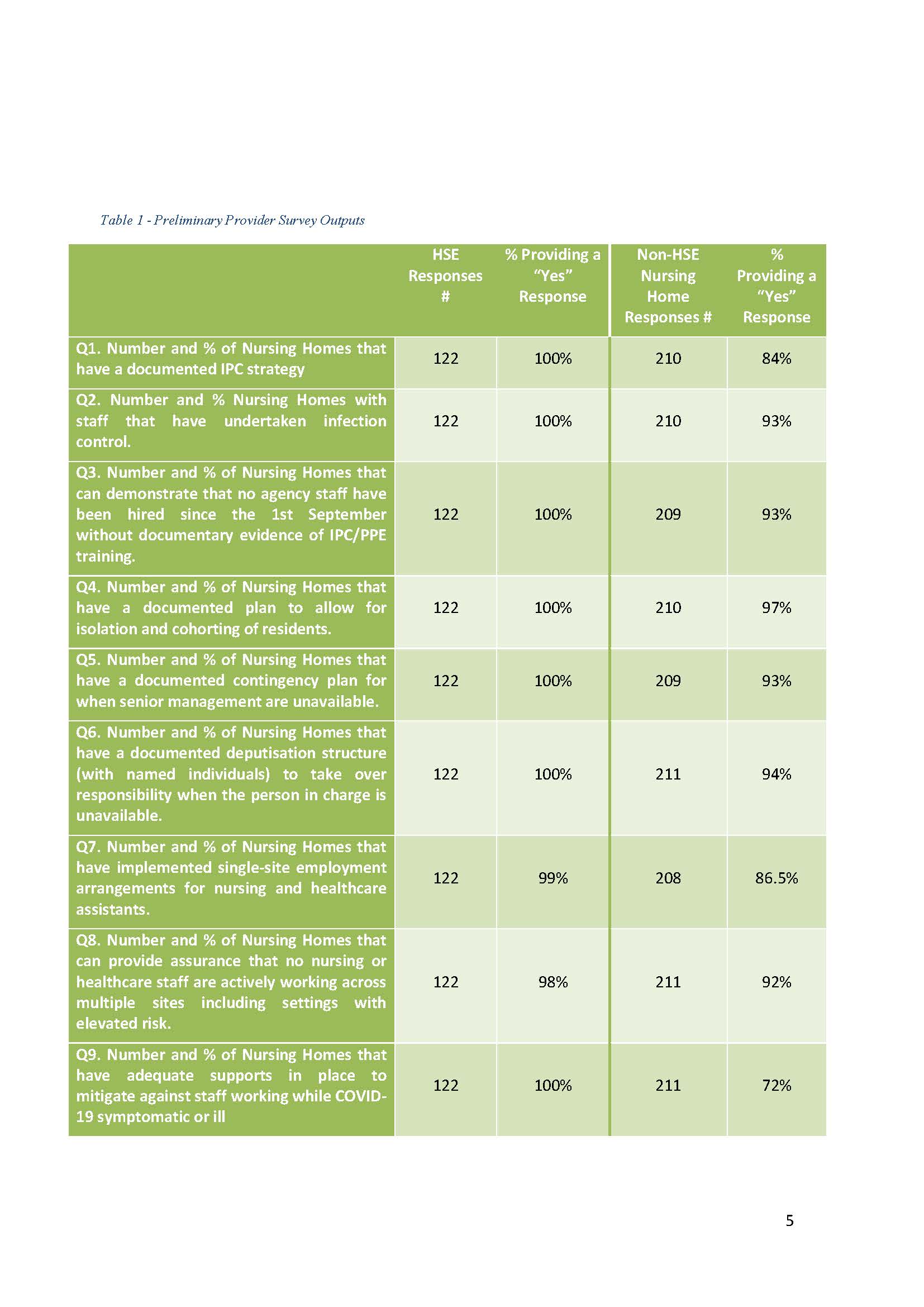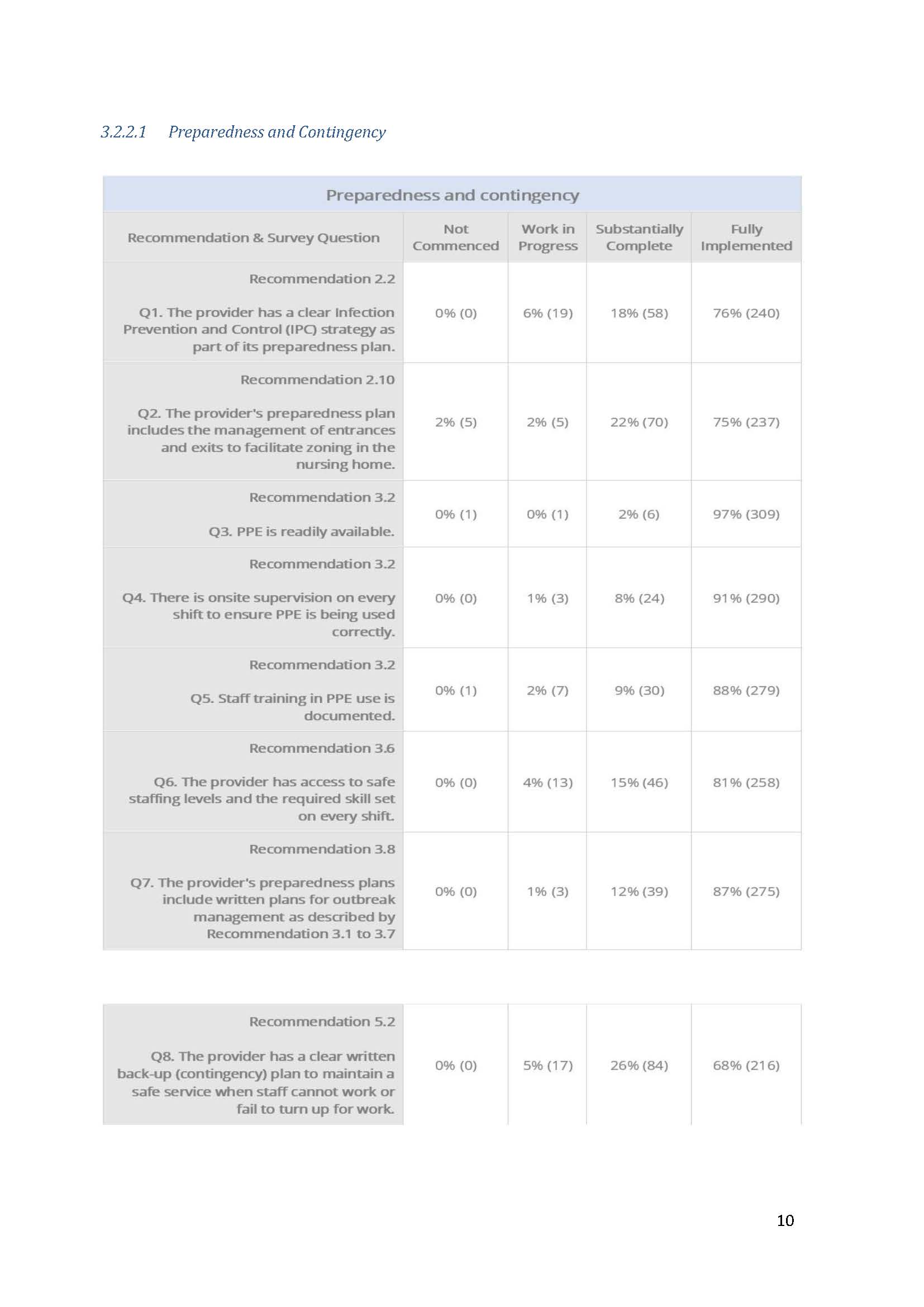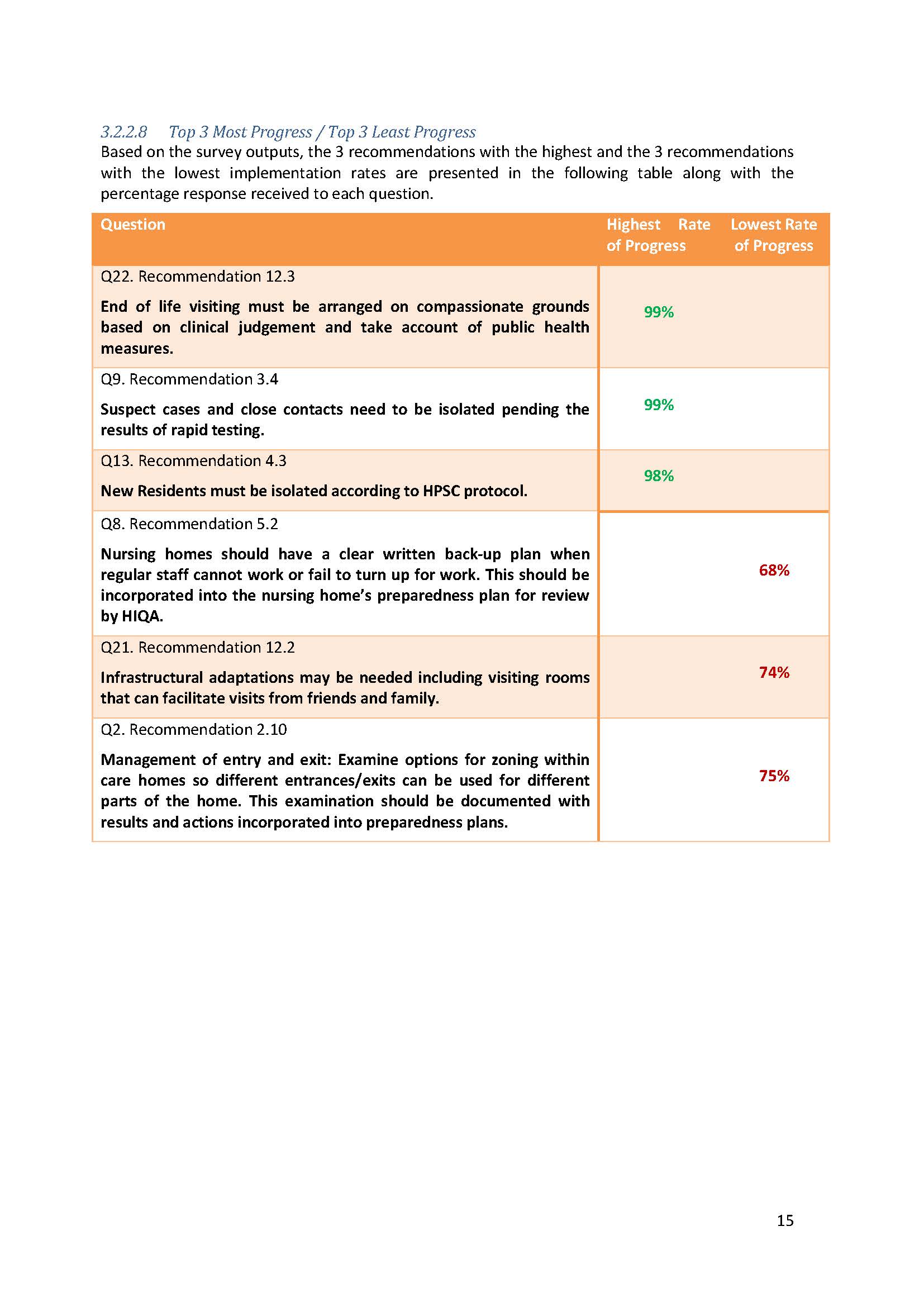Key recommendations of the Expert Panel Report on Covid-19 and nursing homes, in relation to staffing, have not yet been fully implemented across all nursing homes. With an increasing concern about the level of COVID-19 positive cases circulating in workplaces and the community we are concerned about the potential impact on the safety and rights of people living in nursing homes.

A number of recommendations by the Panel focused on staffing in terms of preparedness and contingency planning.
32% of nursing homes who participated in a HIQA survey still do not have clear written back-up (contingency) plans to maintain a safe service when staff cannot work or fail to turn up for work according to the second progress report of the Implementation Oversight Group (IOT) of the Covid-19 Nursing Homes Expert Panel report; this is recommendation 5.2 of the Report which was to come into operation immediately.

The report suggested that staff employed by such homes be precluded from working across multiple sites for the duration of the pandemic. It also said adequate single-site employment contracts should be put in place to support the measure.
13.5% of non-HSE nursing home respondents had not implemented single site employment arrangements for nursing and healthcare assistants according to the second progress report of the IOT.

Since the start of the COVID-19 Pandemic, safe staffing levels and skills-mix was a key concern in nursing homes. The Expert Panel Report on Covid-19 and nursing homes report published in August 2020 made 86 recommendations to safeguard residents in nursing homes ‘over the following 12-18 months’ and ‘into the longer term’. The area where least progress has been made, according to the IOT report, is in the area of maintaining safe staffing levels. Greater attention from the Minister of Health, and the Government as a whole needs, to be paid to protect the equality and rights of people living in nursing homes who experienced a disproportionate negative impact of both the disease and response measures.
